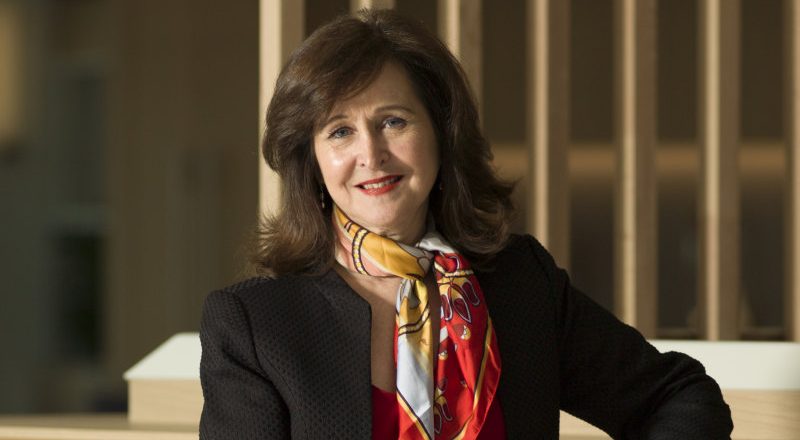$200,000 worse off at 60: Government urged to address super gender gap
The federal government is being urged to use the upcoming budget and its recently announced super review to address the superannuation gender gap, with women often being hundreds of thousands worse off than men by retirement age.
In comments this week, Federal Treasurer Jim Chalmers warned the cost of super tax breaks that favour higher income earners are not sustainable, marking an opportunity for the government to put in place measures to help close the disparity between sexes.
HESTA CEO Debby Blakey says there is inequality within the superannuation system that needs to be addressed.Credit:Elke Meitzel
The super industry has long been calling for payments on the Commonwealth Parental Paid Leave scheme and for a rethink on how super tax concessions that benefit higher income earners could be better distributed.
Debby Blakey, the chief executive of industry super fund HESTA, calls the super gender gap the “motherhood penalty”, where women have less in their super because they take time out of the workforce to care for children.
HESTA’s membership is about 80 per cent women. Blakey says the upcoming May budget is an opportunity to “make real progress on boosting women’s financial security in retirement”.
Among the recommendations in its pre-budget submission, the fund wants super paid on the Commonwealth Parental Paid Leave scheme which, Blakey says is “not just about the dollars; failing to pay super on [the scheme] sends a clear message to women that unpaid caring work continues to be undervalued in our society”.
Figures provided by TelstraSuper illustrate the current gender gap. The average 30-year-old male has a balance of $46,000 with the super fund, while the typical 30-year-old female has $36,000. For males aged 60, it is $450,000 compared to $249,000 for women at 60. The gap would not be dissimilar to other super funds.
“The gender gap in retirement savings starts early in our working lives and widens over time as the power of compounding interest takes effect,” says Chris Davies, chief executive officer of TelstraSuper. “This is glaringly evident from our data.”
Lianne Stokes, 33 – who is married with two children aged nine and three – ended up taking 18 months out of the workforce, longer than she had planned, as she had to provide care for one of her children who was unable to attend daycare.
Stokes and her husband are feeling the squeeze from higher costs of living – particularly the expense of daycare and the rent the couple pay that she says is substantially higher than when they first moved in.
TelstraSuper CEO Chris Davies says the super gender gap is “glaringly evident”.Credit:Louise Kennerley
Stokes, originally from Canada, works as a retail operations specialist at Telstra and her super is with TelstraSuper, which offers all parents up to 16 weeks of paid leave, on which super is paid. The telco also pays super contributions for up to two years of unpaid leave.
However, as she had been at Telstra for a short time when she took leave she did not benefit from the scheme. Her previous employer offered employees only a short period of paid paternity leave.
Stokes relied on the Commonwealth Parental Leave Pay scheme, which provides eligible parents, subject to a means test, with up to 18 weeks of pay at the rate of the national minimum wage. A partner may also be eligible for Dad and Partner Pay for up to two weeks, meaning a family can get a total of up to 20 weeks.
Stokes says financial independence is important and ideally “you would want to have a super balance that is similar to your husband”. She says if super was paid on the government scheme it would’ve made a big difference to her super balance.
Robbie Campo, the chair of the policy committee of Women in Super, says tax concessions are skewed to higher earners with too few benefits going to lower income earners, a disproportionate number of whom are women. She notes only about a third of the super tax concessions go to women, despite them having on average much lower super balances.
Women in Super’s pre-budget submission includes the recommendation that low-income earners aged 25 and over receive a $1,000-a-year government contribution into their superannuation until they reach a super balance of $100,000.
It is also calling on the government to explore a “carers credit” that would be paid to carers’ super funds and recommends that super be paid on the Parental Leave Pay scheme.
- Advice given in this article is general in nature and is not intended to influence readers’ decisions about investing or financial products. They should always seek their own professional advice that takes into account their own personal circumstances before making any financial decisions.
The Money with Jess newsletter helps you budget, earn, invest and enjoy your money. Sign up to get it every Sunday.
Most Viewed in Money
From our partners
Source: Read Full Article



